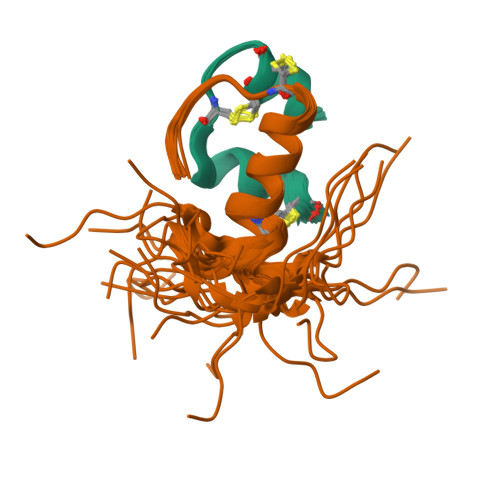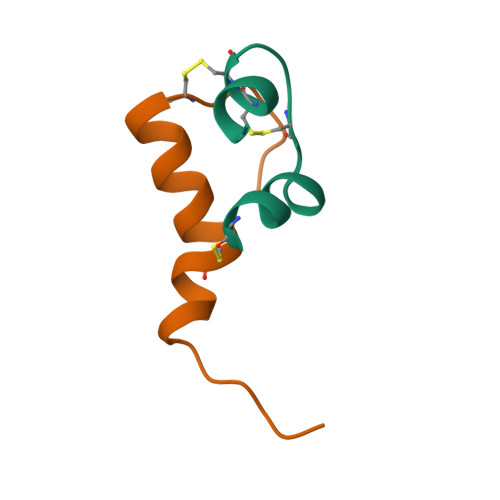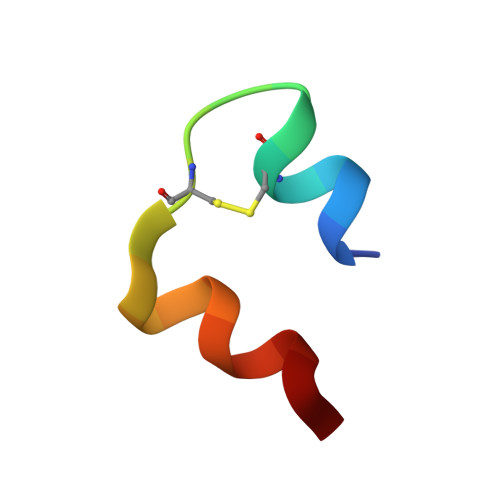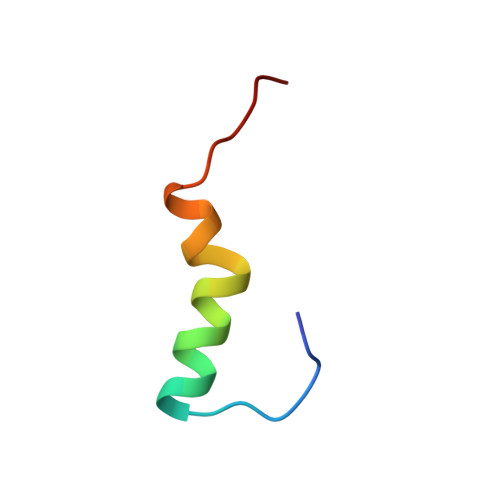Structural integrity of the B24 site in human insulin is important for hormone functionality.
Kletvikova, E., Veverka, V., Lepsik, M., Watson, C.J., Turkenburg, J.P., Jiracek, J., Brzozowski, A.M.(2013) J Biological Chem 288: 10230-10240
- PubMed: 23447530
- DOI: https://doi.org/10.1074/jbc.M112.448050
- Primary Citation of Related Structures:
2M2M, 2M2N, 2M2O, 2M2P, 3ZI3 - PubMed Abstract:
Despite the recent first structural insight into the insulin-insulin receptor complex, the role of the C terminus of the B-chain of insulin in this assembly remains unresolved. Previous studies have suggested that this part of insulin must rearrange to reveal amino acids crucial for interaction with the receptor. The role of the invariant Phe(B24), one of the key residues of the hormone, in this process remains unclear. For example, the B24 site functionally tolerates substitutions to D-amino acids but not to L-amino acids. Here, we prepared and characterized a series of B24-modified insulin analogues, also determining the structures of [D-HisB24]-insulin and [HisB24]-insulin. The inactive [HisB24]-insulin molecule is remarkably rigid due to a tight accommodation of the L-His side chain in the B24 binding pocket that results in the stronger tethering of B25-B28 residues to the protein core. In contrast, the highly active [D-HisB24]-insulin is more flexible, and the reverse chirality of the B24C(α) atom swayed the D-His(B24) side chain into the solvent. Furthermore, the pocket vacated by Phe(B24) is filled by Phe(B25), which mimics the Phe(B24) side and main chains. The B25→B24 downshift results in a subsequent downshift of Tyr(B26) into the B25 site and the departure of B26-B30 residues away from the insulin core. Our data indicate the importance of the aromatic L-amino acid at the B24 site and the structural invariance/integrity of this position for an effective binding of insulin to its receptor. Moreover, they also suggest limited, B25-B30 only, unfolding of the C terminus of the B-chain upon insulin activation.
Organizational Affiliation:
Institute of Organic Chemistry and Biochemistry, Academy of Sciences of the Czech Republic, v.v.i., Flemingovo nám. 2, 166 10 Prague 6, Czech Republic.



















